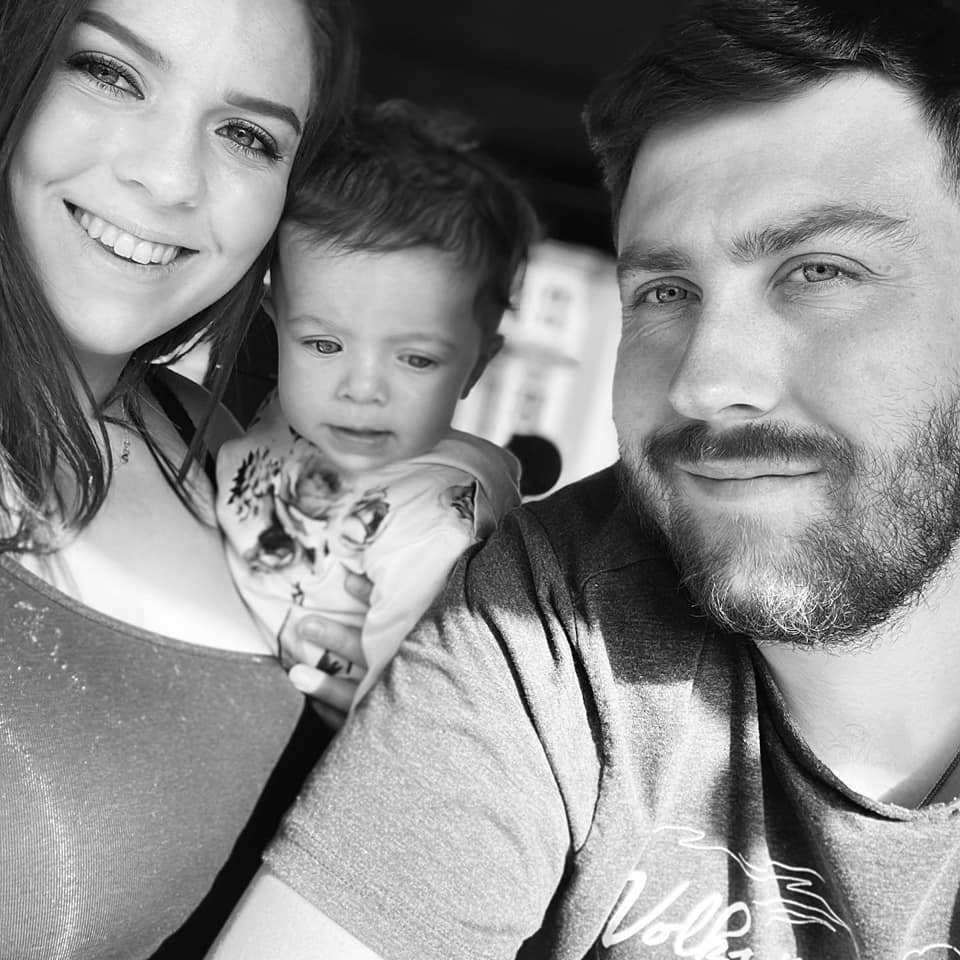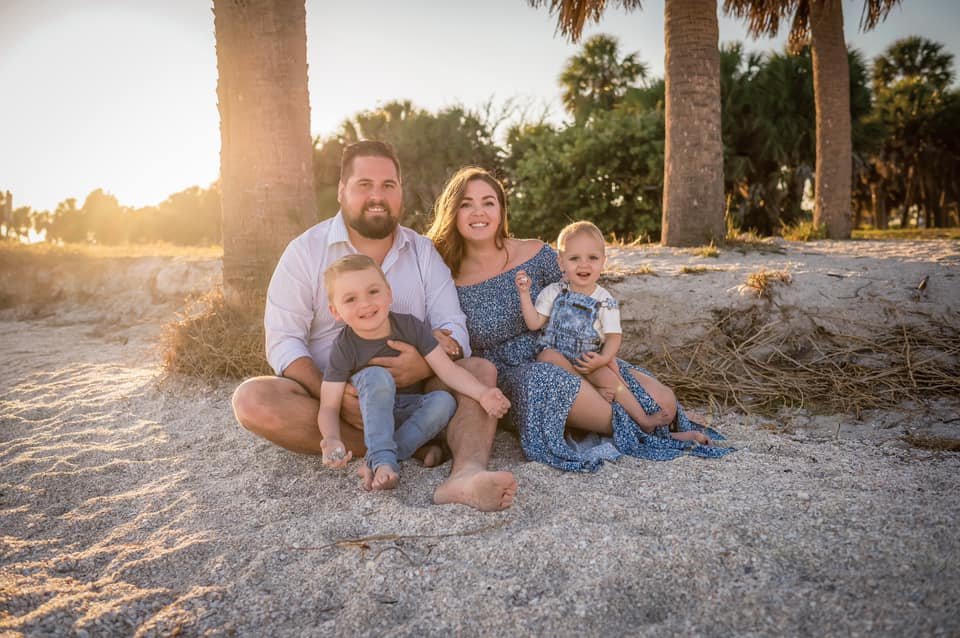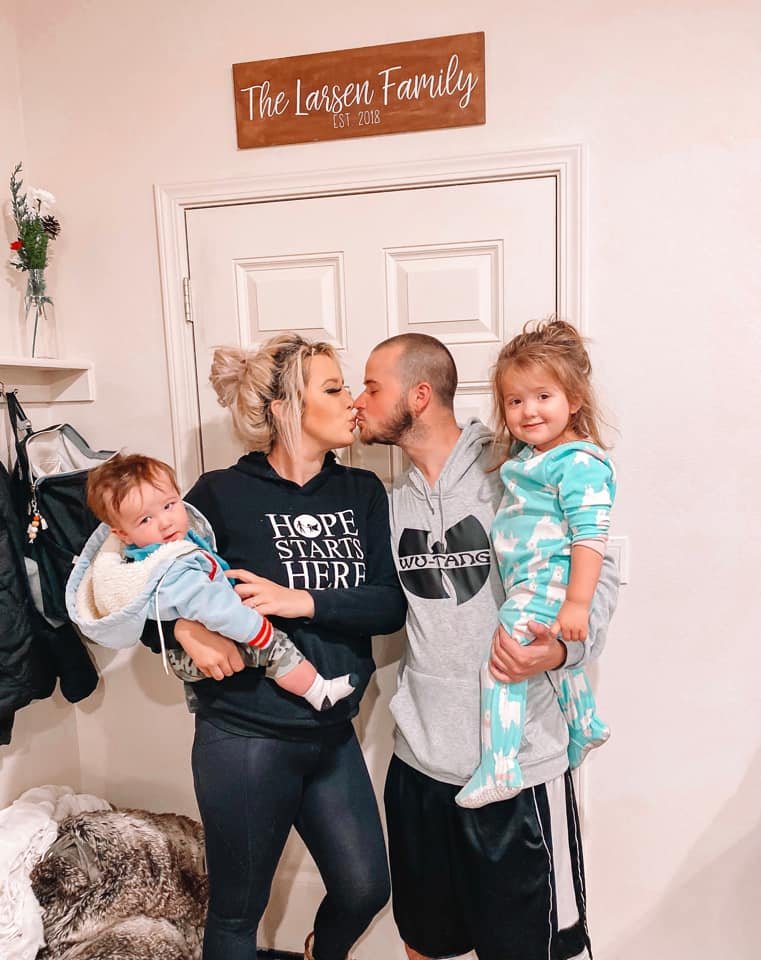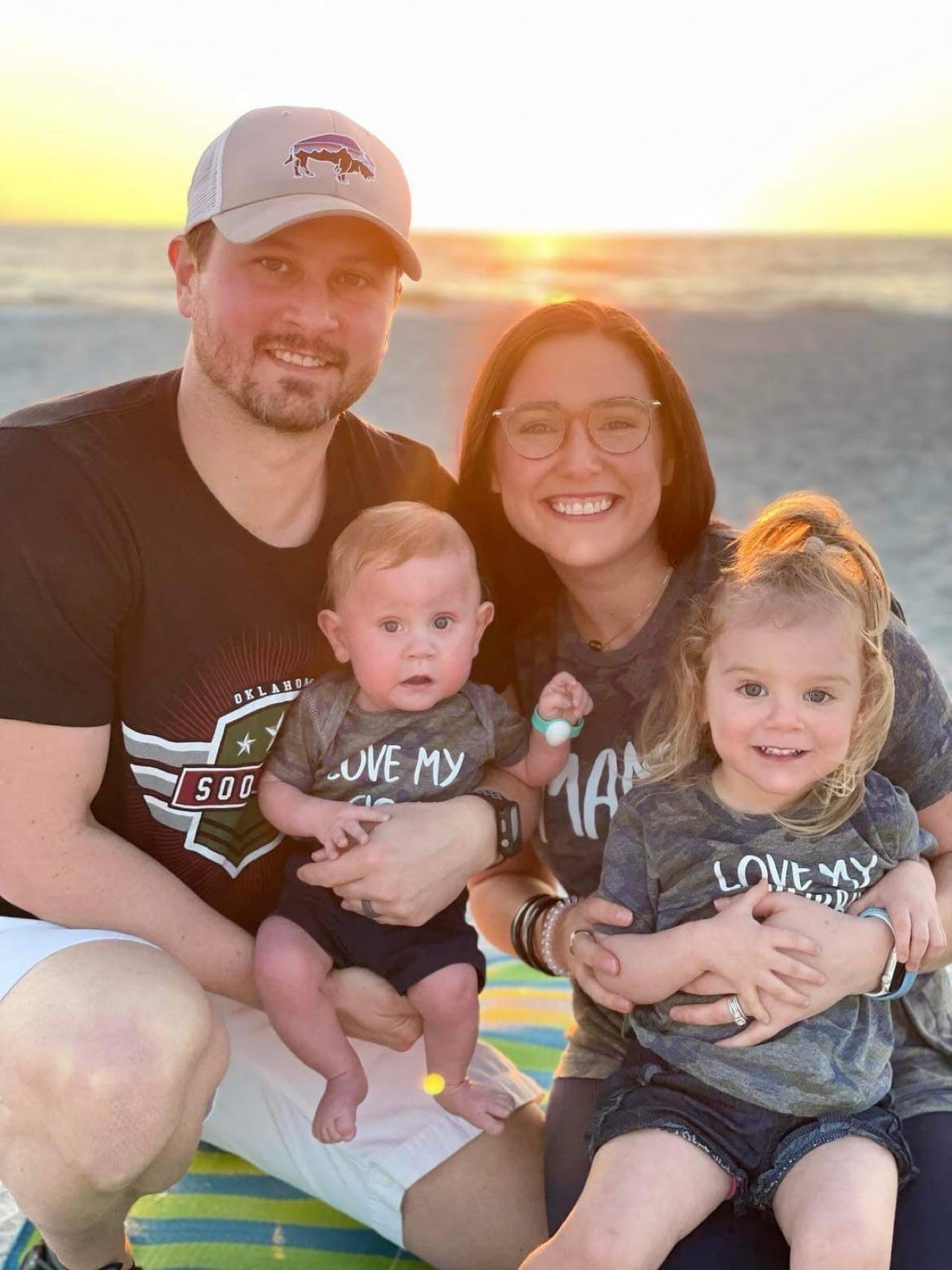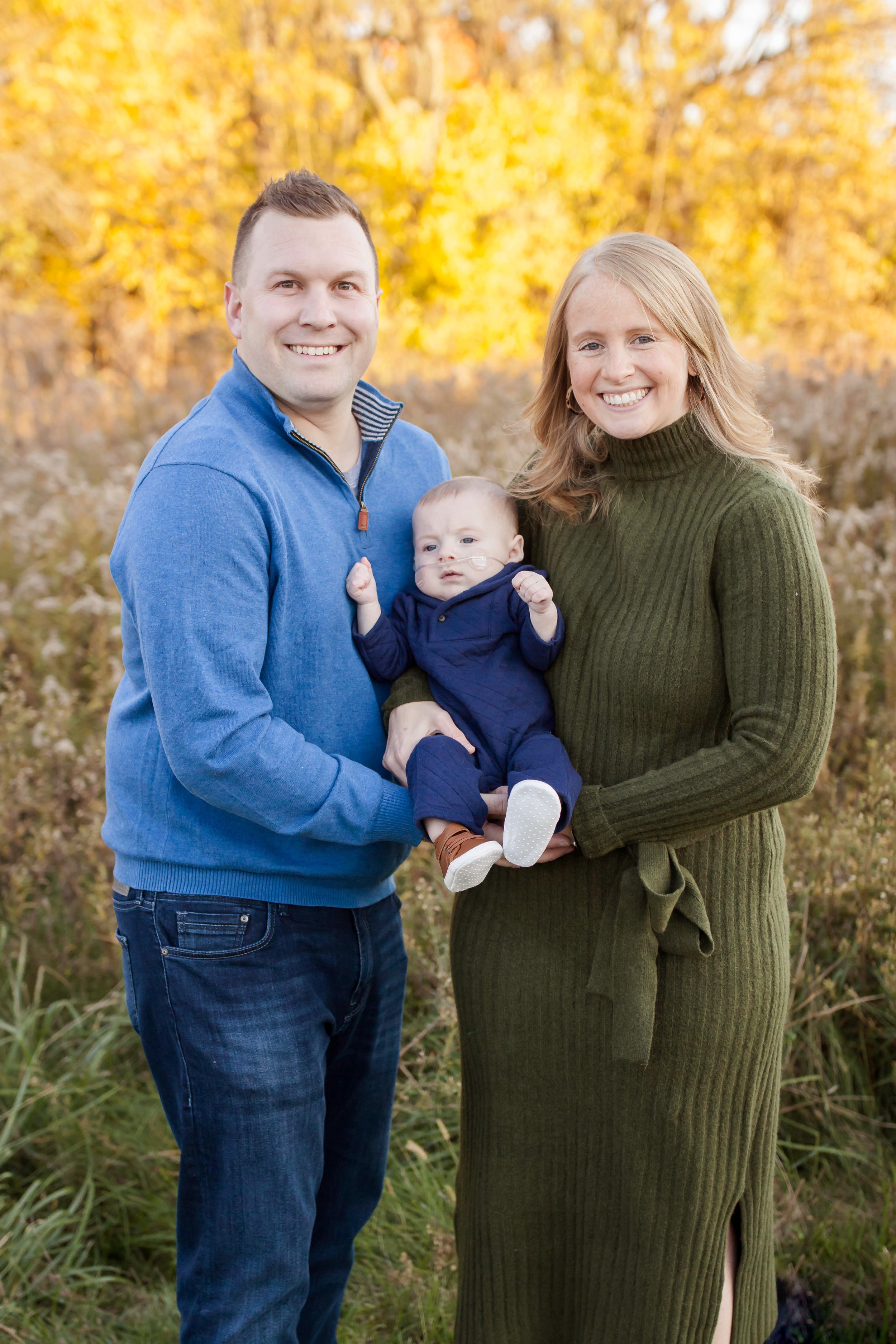Prioritizing Mental Health as a CDH Mom
There is nothing easy about receiving a CDH diagnosis. You might struggle to find joy in your pregnancy or grieve the pregnancy you once envisioned. You might feel intense anxiety about your baby’s health. You might face a grueling number of doctor visits, test results, and medical decisions. You might be overwhelmed and exhausted by long days and traumatic events in the NICU, and the list goes on. Of course, the journey is more than worth it to bring our babies into the world, but that does not change the fact that it is legitimately hard.
This World Mental Health Day, we want you to know that no matter where you are in your CDH journey – you are not alone. In fact, over a quarter of mothers are estimated to face some form of mental health challenge, which can include anxiety, depression, and postpartum PTSD. The good news is that there is never a wrong time to seek support. Whether you are a newly-diagnosed mom and want to seek support proactively or are many years post-discharge and are looking for just a bit more to carry you through those extra tough days, there is help.
Though by no means a comprehensive list, the following tools and coping mechanisms are a good place to start for CDH moms.
1. Talk to an Affordable Therapist
Therapy is a powerful tool at any stage of your CDH journey. Many insurance plans do not have a substantial therapy benefit, and the typical out-of-pocket cost per session ($100-$200) can be prohibitive. Fortunately, there are ways to find an affordable therapist:
Call your insurance company. They might have a list of local therapists they work with for a small co-pay each session. Be sure to ask how many sessions are covered.
Use your employer’s Employee Assistance Program (EAP). Most EAPs provide short-term counseling free of charge (and will be kept confidential from your employer). If you are unsure if your company or your spouse’s company has an EAP, ask HR.
Ask your NICU and MFM providers. Your team may know of affordable therapists in your community or may offer a program themselves for parents in the NICU.
Find a therapist through Open Path Collective. Open Path is a membership service that provides therapy at a reduced rate ($30-$60 a session) for those who do not have adequate mental health coverage and have a household income under $100,000.
2. Join a Support Group
Connecting with other moms who have gone through the same thing can be an invaluable source of support, advice, and validation. Some recommended online support groups include:
Tiny Hero’s CDH Support Network: Connect with parents of CDH children and CDH survivors to ask questions and draw support
Hand to Hold’s NICU Parent Support Groups: Talk to other NICU parents during these live, one-hour virtual sessions (these are not specific to CDH families but are open to anyone with NICU experience)
CDH Foundation’s monthly virtual events: Connect with other CDH parents across a variety of forums, including a monthly Grief Share for parents of a CDH angel.
3. Know the Signs of Postpartum PTSD
After you deliver, most doctors will screen you multiple times for postpartum depression, but not all will screen for postpartum PTSD. Knowing the signs of PTSD can help you recognize them and advocate for yourself if needed. According to the American Psychological Association, symptoms can include:
Nightmares, flashbacks, or intrusive thoughts
Feeling detached and/or avoiding things that remind you of the trauma
Feeling especially anxious, on edge, and/or irritable
PTSD will typically appear within three months of a significant trauma but may also appear later. If you think you are experiencing PTSD, talk to your doctor or therapist so they can work with you on a treatment plan. PTSD can be significantly improved and is not something you must cope with alone.
4. Assume Positive Intent
Well-meaning friends and family do not always know what to say or do during this journey. Some who feel unsure about what to say don’t say anything at all, which can feel even worse, making an already isolating experience feel even lonelier. Try to remember that what you are going through is new to your loved ones as well and always try to assume positive intent on their part. You might be surprised by those who will be able to provide meaningful support – an acquaintance who had a baby in the NICU or a colleague with a medically-complex child. Take support where you can find it, and remember that those closest to you may not always know the right thing to do or say, but they care and are trying to support you in their own way. So don’t be afraid to ask for the specific help you want – most people will welcome direction if you feel like giving it.
5. Be Intentional About Sharing Updates
It can feel exhausting to explain your child’s condition or provide what feels like nonstop updates to family and friends. Find a strategy that works for you. That could look like designating one family member to remain in charge of updating the rest, using a platform like CaringBridge or a dedicated Facebook group to update everyone at once, or respectfully asking for privacy until you are ready to share your story in more detail. There is no right or wrong way – and it is okay to change how and whom you update as you go. Just be sure that whatever you do gives you the support you want in a way that doesn’t feel draining.
6. Keep a Journal
There is significant evidence that journaling supports mental health. Consider starting a journal dedicated to your CDH journey. There is no right or wrong way to do it – you can write to yourself, write letters to your baby, capture meaningful quotes, song lyrics, or scripture that you find comforting, or even keep medical notes for future reference. It can give you a forum to process your journey as it unfolds and gives you a record to go back to for years to come.
7. Take it One Day (or Less) At a Time
It’s easy to look towards the uncertain future, especially in the early days of diagnosis or from inside the lonely walls of the NICU and feel completely overwhelmed. Shorten your time horizon to whatever feels manageable. Taking it “one day at a time” really does help, but sometimes even that can feel like a lot. Focus on getting through the next hour, the next minute, or even the next decision – whatever feels doable. CDH is a marathon, not a sprint, and you do not have to figure it out all at once.
8. Focus on What You Can Control
The list of things in your control during this journey can feel short, but that does not make them any less important! Eating a nutritional diet for your baby while pregnant, reading to them in the NICU, asking questions of your medical team, and advocating for your child are all things that are both in your control and productive to focus on. Whatever that list looks like for you, identify a few things and focus on them. Remind yourself that you are doing an A+ job on what is in your control, and let yourself feel good about that.
9. Celebrate the Wins
This journey can have lows that feel really low – but it also will offer you the highest highs. Don’t lose sight of them. Make it a point to celebrate each win, big or small. Use them as fuel to keep going.
10. Don’t Rush Yourself
There is no set timeline to cope with everything you go through as a CDH mom – and for many, the need to keep moving forward during pregnancy and the initial NICU stay means that you may have compartmentalized a lot of feelings that you need to go back and unpack. Give yourself all the time you need to fully grieve what you need to grieve. Give yourself all the time you need to process and find meaning from your experience. Trust that it will get easier with time.
Above all else, give yourself grace! Don’t forget how strong you are, even if it feels like you have given your all and it’s just not enough. You are more than enough. You are learning, advocating, and making tough calls. You are mustering strength and courage to a degree that few moms and families ever have to. Just like our CDH babies – CDH moms are fighters and heroes, too.
About the Author
Sarah Evans is Tiny Hero Miles’s mom. She and her husband relocated from New York to Florida for three months in 2022 to deliver at Johns Hopkins All Children’s Hospital, where Miles was treated for his LCDH. They live in Rochester, NY, with their dog Juno. Sarah is a healthcare researcher and change management professional with experience across hospital and post-acute settings. Between her professional experience and expertise as a fellow CDH mom, Tiny Hero is grateful for her help with this blog!
Would you be interested in guest blogging for Tiny Hero? Send us an email: Stories@TinyHero.org


